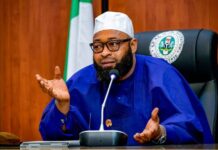A News Analysis by Constance Athekame,
News Agency of Nigeria (NAN)
Power generation is considered one of the key parameters used in measuring the extent of development of any nation even as research has shown correlation between electricity consumption and Gross Domestic Product.
International Energy Agency notes that while many of the developed countries have attained 100 per cent electrification access, scores of developing nations, particularly those in sub-Saharan Africa, including Nigeria that is 59 years old as a nation, are characterised by poor reliability on power supply.
In a move to attain uninterrupted power supply in the country, the Federal Government privatised the power sector in 2013 by which the Power Holding Company of Nigeria (PHCN), formerly National Electric Power Authority (NEPA) ceased to exist.
Six years after, Nigerians expect that power generation, transmission and distribution would significantly improve after the privatisation.
Concerned citizens, however, express concern that the sector is in a state of uncertainty in spite of leaving the control of generation and distribution in the hands of private investors to ensure adequate, regular and stable electricity supply.
Indeed, to most stakeholders, challenges besetting the sector appear to have been compounded more than they were when the government controlled the industry.
While government is still in charge of transmission, the Electric Power Sector Reform Act of 2005 unbundled the national power company into a series of 18 successor companies — six generation companies and 11 distribution companies — covering the 36 states and Federal Capital Territory (FCT) Abuja.
Mrs Joy Ogaji, Executive Secretary, Association of Power Generation Companies of Nigeria says that from available data, as at takeover in 2013, generated energy stood at about 3,186 megawatts.
Ogaji notes that at post-privatisation, the electricity generation companies have an available capacity of 7,500 megawatts but due to several constraints, what is being utilised is an average of 4,500 megawatts.
She observes that presently 6,178 megawatts are generated while what is utilised is 3,584.27 megawatts.
The establishment of the Nigerian Electricity Regulatory Commission (NERC) followed the privatisation as provided in the Electric Power Sector Reform Act of 2005.
It is charged with monitoring and regulating the Nigerian electricity industry to issue licences to market participants and ensuring compliance and also saddled with the responsibility of reviewing the tariff.
However, NERC says in its first quarter report for 2019, 8,951, 869 megawatts of energy was generated, slightly higher than the level of generation during the fourth quarter of 2018.
“During the quarter, the industry recorded the peak generation of 5,375 megawatts, however, the available plant generation units declined to 61 from the daily average of 72 recorded in the last quarter of 2018.
“In spite of the decline in the available generation units in the first quarter, the total energy generation rose by 0.8 per cent with 8.9 per cent points increase in generation capacity utilisation.
“The challenge arose from insufficient gas supply, transmission/distribution networks and water management at the hydro-power stations.
“In spite of the marginal improvement in sector performance during the quarter under review, the aforementioned industry constraints continue to pose major technical and operational challenges to the industry,’’ the commission says.
The commission observes further that the complete resolution of the highlighted technical and operational constraints in the Nigerian Electricity Industry remains one of its top priorities.
It says that the commission has continued to work on addressing the Electricity Distribution Company (DisCo) and the Transmission Company of Nigeria (TCN) interface bottlenecks.
Concerned citizens also express concern about a post allegedly on NERC website that beginning from 2020, power consumers will have to pay an additional cost for every energy provided by their respective distribution companies.
With the recent plan by NERC to hike electricity tariff in the country, consumers insist that they will not be willing to pay for weak power distribution system.
Most of them complain that power supply in the country has not been stable, so paying for such services won’t be profitable.
Mr Kunle Olubiyo, President Nigeria Consumer Protection Network, observes that electricity is germane to development and once it is done right, it brings development.
Olubiyo says that there has been continuous increase in tariff since the sector moved from the public sector to the private sector-driven power sector of the economy.
He insists that any increase in tariff should be followed by efficient service delivery and increase in investments on power projects.
According to him, the reason why the power sector is privatised is because of leakages where Nigeria has the highest benchmark for procurement rating.
According to him, the privatisation agreement signed by the power companies has what is called the mid-term review and there is what we also call the immediate, the mid-term and long term review.
“So we are now expecting that by December 2019, the privatisation is supposed to be about five years, we expect that all the critical stakeholders will come and review the operations.
“We are not saying that licenses should be out rightly revoked, government is continuous, but what we are saying is that the review we envisage is to reset the present nature of non-performance.
“There are lots of indices of non-performance and if there is non-performance, Federal Government can invoke the rule of discharge by frustration on those that have not been able to perform,’’ he notes.
Chief Solomon Vongfa, President the Nigerian Association of Small Scale Industrialists (NASSI), says that the issue of increase is not new as there has been continuous increase in tariff.
He observes that that when the government wanted to partially unbundle the PHCN, it increased the tariff to attract investors.
According to him, even after the partial unbundling, the problem in the power sector is still not solved and everybody knows that without power a lot of businesses cannot go on effectively.
“Instead of people to have a good and easy business environment, increase in tariff will be harsh on Nigerians because they would be buying expensive goods.
“We are also advising that it is not just raising the tariff that matters, what we want is that power should be dedicated to industrial business environment,’’ he advises.
Mr Okojie Livinus, a welder in Lugbe, Abuja, calls on the Federal Government to do everything possible to ensure that there is an improvement in electricity.
He says that increasing tariff and not having light to do business is a problem, saying “for some time now, it has been difficult to work in the day time because of unstable power supply’’.
Mrs Ruth Kadiri, a fashion designer and resident of Lugbe, notes that it is difficult for her to sew without power supply as most of her machines use electricity.
According to her, if there is a plan to increase the cost of electricity, power should be made available to consumers.
In response to power supply challenges in the country, Prof. James Momoh, Chairman of NERC, says that stable electricity supply can be achieved when the metering situation in the country improves.
He, nonetheless, states that the commission has not increased tariff contrary to what the public are saying.
“NERC has not increased tariff at the moment. What we have done is ask the big question: When do we get things right given that the Discos say we need cost-reflective tariff to be able to provide services that we actually should do?
“We did a minor review which is a review that takes into account the exchange rate, gas availability, availability of capacity generation, network availability, to make sure there is meter available to customers.
“We are committed to improving the quality of lives of Nigerians every day and every minute.
“By the time we allow renewable energy before 2030, a lot will be done; I am saying do we have a target when all Nigerians will be powered? Hopefully, in our lifetime, it will happen’’, he assures Nigerians.











